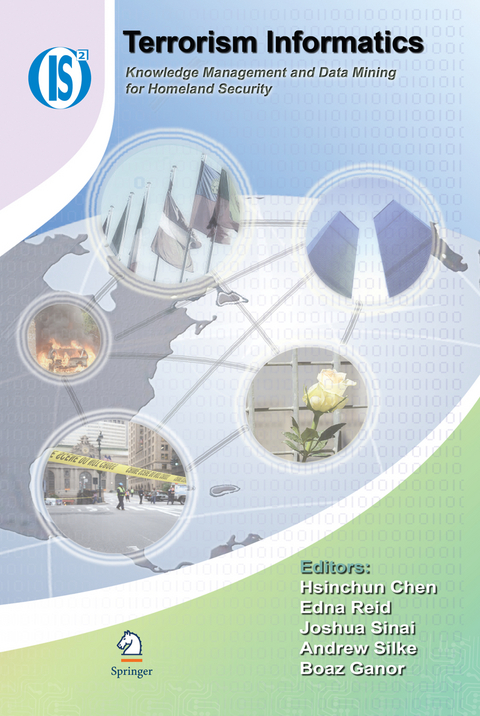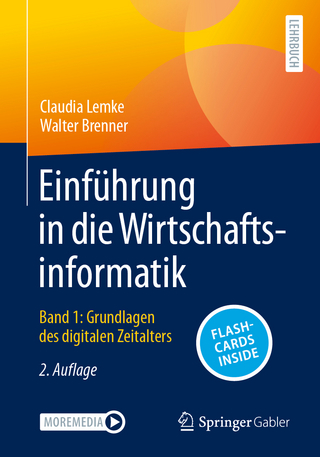
Terrorism Informatics
Springer-Verlag New York Inc.
978-1-4899-9814-9 (ISBN)
Terrorism informatics has been defined as the application of advanced methodologies, information fusion and analysis techniques to acquire, integrate process, analyze, and manage the diversity of terrorism-related information for international and homeland security-related applications. The variety of methods used in terrorism informatics are derived from Computer Science, Informatics, Statistics, Mathematics, Linguistics, Social Sciences, and Public Policy and they involve the collection of a mass of information from multiple sources and in numerous languages.
TERRORISM INFORMATICS: Knowledge Management and Data Mining for Homeland Security will provide an interdisciplinary and comprehensive survey of the state-of-the-art of terrorism informatics domain along three basic dimensions: methodological issues in terrorism research; information infusion techniques to support terrorism prevention, detection, and response; and legal, social, privacy, and data confidentiality challenges and approaches.
The lead author is an editor for the IEEE Int. conference on Intelligence and Security Informatics and the founder of ISI conferences.
Methodological Issues in Terrorism Research.- Domain Mapping of Contemporary Terrorism Research.- Research on Terrorism.- Who Are the Key Figures in ‘Terrorism Studies’?.- Interviewing Terrorists.- Resolving a Terrorist Insurgency by Addressing Its Root Causes.- A Quantitative Analysis of ‘Root Causes of Conflict’.- Countering Terrorism with Knowledge.- Toward a Target-specific Method of Threat Assessment.- Identifying and Exploiting Group Learning Patterns for Counterterrorism.- Homeland Insecurity.- Terrorism Informatics to Support Prevention, Detection, and Response.- Case Study of Jihad on the Web.- Studying Global Extremist Organizations' Internet Presence Using the DarkWeb Attribute System.- Content Analysis of Jihadi Extremist Groups' Videos.- Analysis of Affect Intensities in Extremist Group Forums.- Document Selection for Extracting Entity and Relationship Instances of Terrorist Events.- Data Distortion Methods and Metrics in a Terrorist Analysis System.- Content-Based Detection of Terrorists Browsing the Web Using an Advanced Terror Detection System (ATDS).- Text Mining the Biomedical Literature for Identification of Potential Virus/Bacterium as Bio-Terrorism Weapons.- Leveraging One-Class SVM and Semantic Analysis to Detect Anomalous Content.- Individual and Collective Analysis of Anomalies in Message Traffic.- Addressing Insider Threat through Cost-Sensitive Document Classification.- Using Web Mining and Social Network Analysis to Study The Emergence of Cyber Communities In Blogs.- Automatic Extraction of Deceptive Behavioral Cues from Video.- Situational Awareness Technologies for Disaster Response.
| Reihe/Serie | Integrated Series in Information Systems ; 18 |
|---|---|
| Zusatzinfo | XLII, 558 p. |
| Verlagsort | New York |
| Sprache | englisch |
| Maße | 155 x 235 mm |
| Themenwelt | Mathematik / Informatik ► Informatik ► Netzwerke |
| Informatik ► Office Programme ► Outlook | |
| Informatik ► Theorie / Studium ► Algorithmen | |
| Mathematik / Informatik ► Informatik ► Web / Internet | |
| Mathematik / Informatik ► Mathematik ► Finanz- / Wirtschaftsmathematik | |
| Sozialwissenschaften ► Politik / Verwaltung ► Politische Theorie | |
| Wirtschaft ► Allgemeines / Lexika | |
| Wirtschaft ► Betriebswirtschaft / Management | |
| ISBN-10 | 1-4899-9814-4 / 1489998144 |
| ISBN-13 | 978-1-4899-9814-9 / 9781489998149 |
| Zustand | Neuware |
| Haben Sie eine Frage zum Produkt? |
aus dem Bereich


